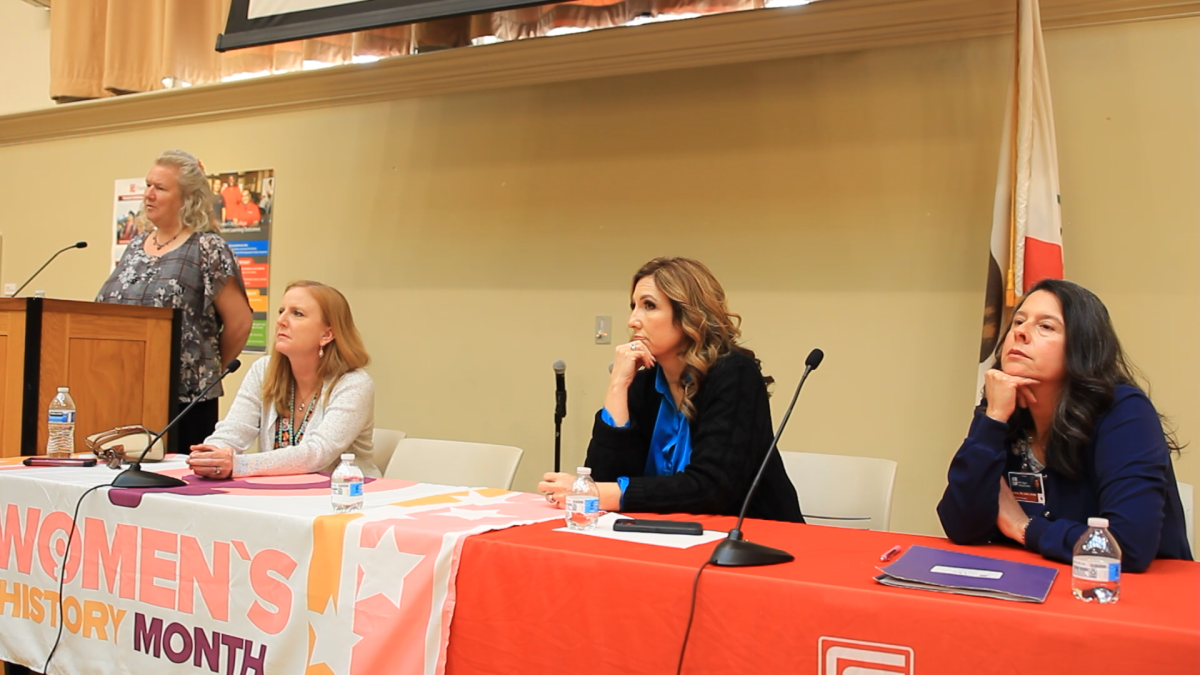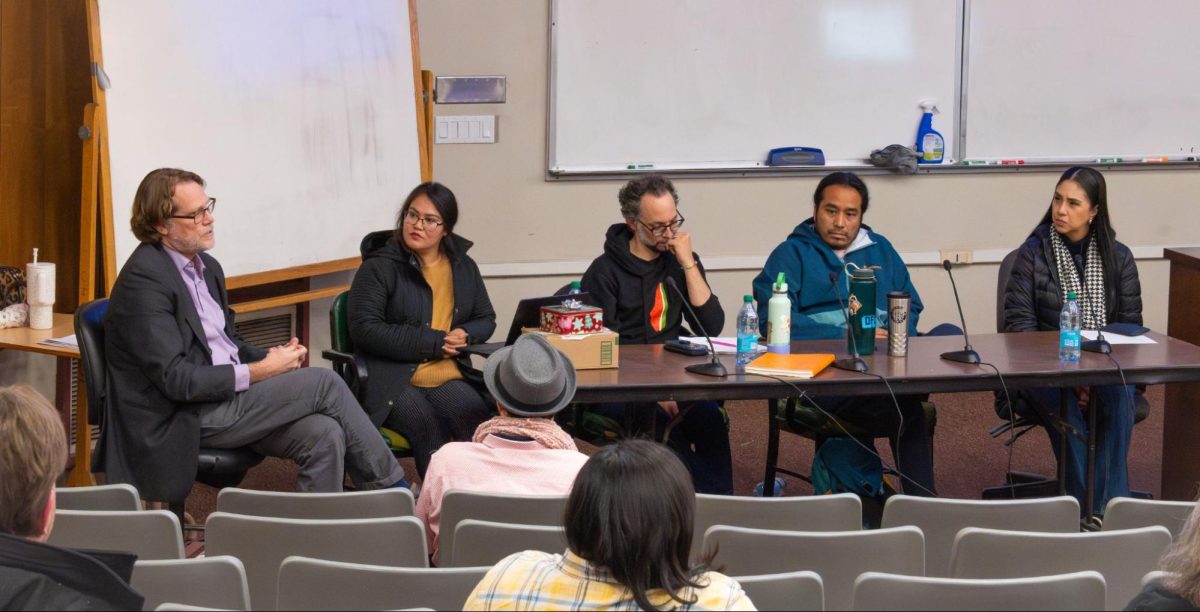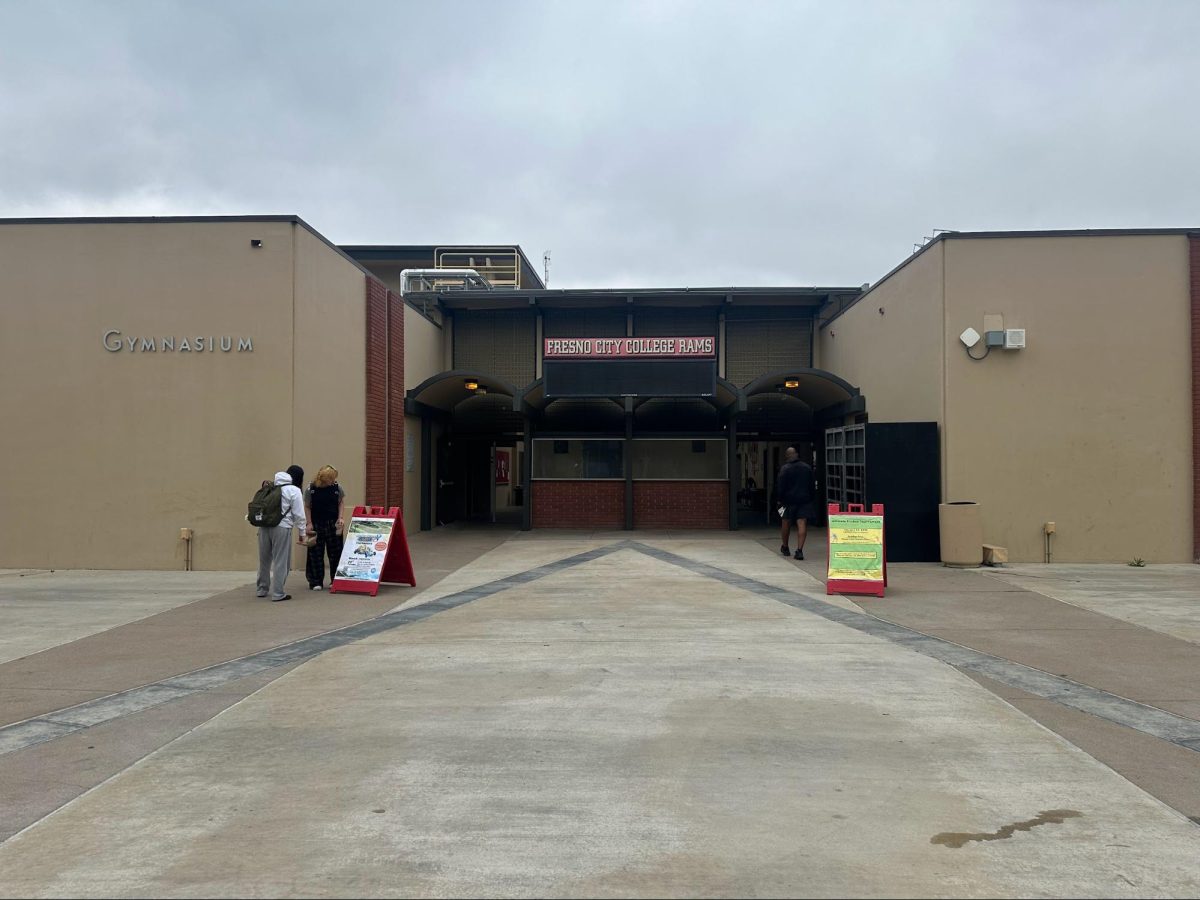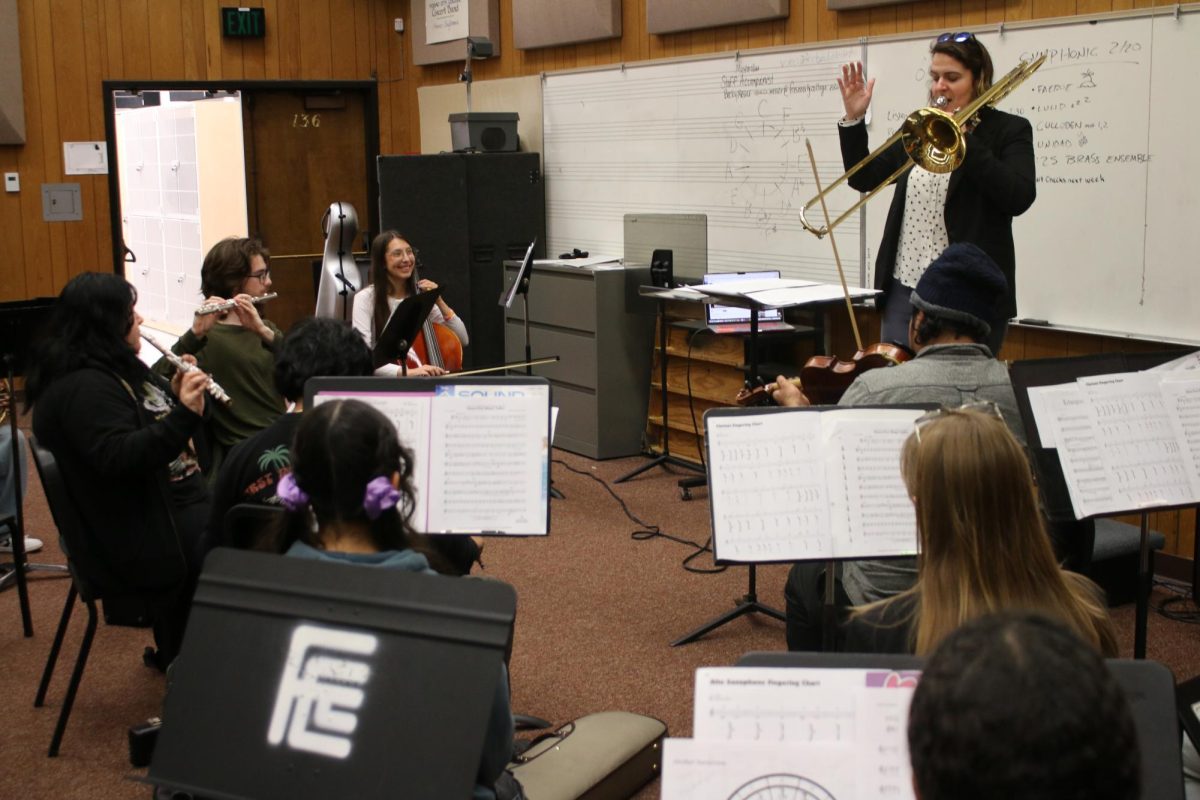It’s February again, and a time for African Americans to come together to reflect on their long and eventful journey in America.
At Fresno City College, this celebration of Black triumph kicked off with an opening day ceremony in the FCC Theater. The event was highlighted with speeches from prominent members of the African American Community, an African dance performance by the students of Martin Luther King Jr. Elementary school and readings of poems from Langston Hughes and Maya Angelou by the students of the IDILE program at FCC.
The Opening Day Ceremony featured African American Studies professor Kehinde Solwazi, who took the opportunity to shed light on the lesser-known facts of African American history.
Solwazi took the audience back to the beginning and revealed the beauty of Africa. He spoke about the great universities and architectures that Africans built, and about the first writing systems from Nubia and Ethiopia.
“We have to love ourselves to get respect,” said Solwazi as he showed slides reflecting the diversity of Black people. “We have the gift of melanin,” he said referring to the substance that gives color to the skin.
Solwazi also did not neglect to mention the trials Black people have overcome throughout the years. He spoke of the 200,000,000 Africans that were enslaved and about the Haitian Revolution, in which slaves defeated their masters for the first time in history. “This is the event that established our identity,” said Solwazi.
Solwazi emphasized the importance of Black History Month not only for African Americans, but also for all people in general.
“Black History Month is important for African Americans because it helps them get to know their history, but it’s also important for others to know Black History, because these are the missing pages,” said Solwazi.
As for African Americans today, Solwazi believes it is the responsibility of his generation “to move young people in the direction.”
“If my generation does it’s job, young people will get directions. Otherwise it will be all about pop culture,” he said.
Sticking with this year’s theme of “Civil War: African-American Self-Determination,” Solwazi explained the significance of the Civil War. “If I was alive then, I would have joined them. These are my heroes. These are my most honored ancestors who fought for real freedom,” said Solwazi as he spoke about the African American soldiers who showed the greatest courage and determination when fighting for freedom during the Civil War.
In a time where the meaning of being Black has taken the wrong connotation, Solwazi strives to reiterate what it means to be black. “We have to understand what it means to be Africans. We are Africans,” said Solwazi.”We have to learn to relate to ourselves as Africans and also love being African American. We have to do that without being ashamed.”
Dr. Marnel Niles, professor of communication at Fresno State, was a guest speaker at the opening day ceremony. With hard work and self determination, the Philadelphia native received her Phd from Howard University.
For Niles, Black History Month is an opportunity to share with African Americans and non-African Americans what her ancestors have done.
“It’s the one time when we talk about Black History. Other times we are quiet,” said Niles. “Black History is not taught in many schools. Students are surrounded by European history. This is an opportunity for not just blacks, but for everyone to learn about African Americans,” she said.
Niles is optimistic about the state of Black History. “The young generation has what it takes to carry the legacy,” she says.” They may be doing it in different ways than previous generations but they’re doing that.”
Niles also sees Black History Month as a way to change the future. “The point of the month is to celebrate our history, but we can also use it to change the future,” said Niles. “We can change the future by looking back.”
And in today’s world, change has become urgent. A study by the National Center for Education Statistics showed a correlation between education and the home environment. The study showed more than 70 percent of black children are born to unwedded mothers, who are often themselves born to unwedded mothers. And until the 1950s, almost 80 percent of black children lived in two-parent households, as opposed to today’s 35 percent.
Physics major Karlton “Tutmosis” Brown, an active participant in African American activities within the community, was an usher at the opening day ceremony.
“Black History Month has a strong impact on students. It raises cultural awareness, community awareness and scholastic awareness,” said Brown. “It diminishes ignorance. It puts people in the right direction and informs them on the truth.”
Brown, who is also an aspiring artist, uses music to bring African Americans closer together. “The young generation is misguided by so called entertainment,” he said. “My job is to close the gap and hopefully young people can see where they are going wrong. Education through entertainment is a strong weapon against ignorance.”
In the coming days, Fresno City College will host more events in honor of Black History Month. Among these events are an African Tent vendors gathering featuring live music and food, a rites of passage ceremony emphasizing the transition from youth to adulthood and a retirement celebration for Kehinde Solwazi on Feb. 24 at 11 am in the student lounge.
“Even with the budget crisis, Fresno City College is doing the best it can. We’re drawing on our resources,” said Solwazi. “The support has been great and there are enough bright young people who can promote this month.”






